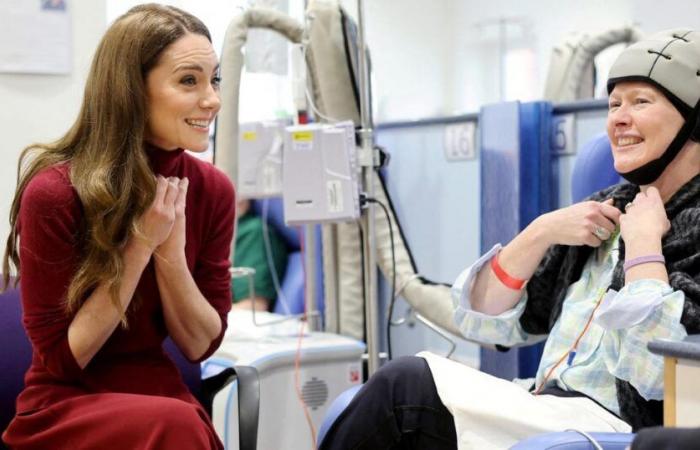Medically speaking, this term is never used randomly. It reflects the idea that when it comes to cancer, there is a lot of uncertainty.
For the Princess of Wales, the year 2025 seems to be off to a better start than the previous one. Tuesday January 14, Kate Middleton officially announced that she was in remission from abdominal cancer (a vague term which can refer to the intestines as well as the ovaries or the pancreas), diagnosed a year earlier. « It’s a relief to now be in remission and I remain focused on recovery »she published on her Instagram account. Why does she talk about “remission” rather than “cure”? Answer with a specialist.
« Remission reflects the partial or complete disappearance of the cancerous disease, often after an imaging test, such as a CT scan, an MRI, a PET scan, or after surgery to remove the tumor. »explains Professor Claude Linassier, medical oncologist and director of the prevention, organization and care pathway at the National Cancer Institute. Remission can be partial – the tumor has simply reduced in size but other treatments are necessary – or complete (the cancer cells seem to have completely disappeared).
A term that reflects uncertainty
Why, in this second case, not speak directly of healing? « We can never prejudge that this macroscopic disappearance reflects the death of all cancer cells at the microscopic level and the impossibility of a relapse after a period of monitoring. »replies Professor Linassier. In other words, even if biological and imaging tests suggest that the cancer has been defeated, we can never be certain that there are no irreducible cancer cells remaining.
We can never prejudge that this macroscopic disappearance reflects the death of all cancer cells at the microscopic level and the impossibility of a relapse after a period of monitoring.
Professor Claude Linassier, medical oncologist and director of the prevention, organization and care pathway at the National Cancer Institute
-
SO « instead of talking about cure, as we do about an infectious disease for example, we prefer to talk about complete remission »specifies the oncologist. This medical term « introduces a notion of uncertainty, the possibility of a recurrence of the tumor and therefore the need for surveillance »he continues.
When a resurgence of cancer occurs, it is most often in the first two years after the end of treatments. As time passes, the risk of relapse decreases. « It is linked to the survival of cancer cells, which can remain quiescent for several years (so-called “dormant” cells) and which can “wake up” by poorly understood mechanisms. »indicates Professor Claude Linassier. « Recurrences have already been observed a long time after diagnosis, but this is rare and, as a general rule, recurrences after ten years are exceptional and they are uncommon after five years. »
In cancerology, the word “cure” exists
Even if the word “cure” is rarely used by doctors in their discussions with patients treated for cancer, it should not be banned either. But « it is only after several years of monitoring that we can venture to speak of healing »argues Professor Linassier.
This period of vigilance – which extends at least five years – depends greatly on the type of cancer. « For certain tumors, such as a testicular tumor or Hodgkin’s disease, we can speak of cure from five years oldillustrates the oncologist. For others, even if the risk decreases over time, knowing the period at risk of recurrence leads to extending monitoring up to ten years after the end of treatment. »
After this period, it is estimated that the patient has a high chance of being “cured” and that he has regained the same life expectancy as people of the same age and sex who have not had cancer. However, the risk of relapse is never completely zero and patients must learn to live with this uncertainty. Kate Middleton is no exception to the rule. Her state of health will therefore be closely monitored at least until 2029. After this deadline, if all goes well, she will be able to consider herself “cured”.





